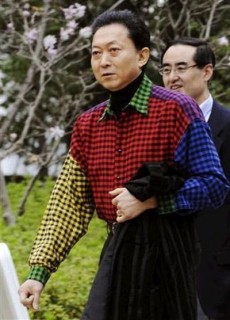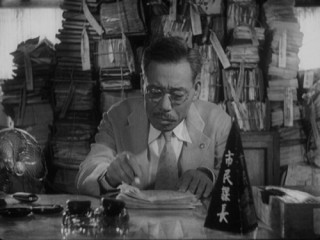UCLA = You See Lots of Asians?
By Dyske July 27th, 2010
From The Boston Globe, Do colleges redline Asian-Americans?
In California, where passage of a 1996 referendum banned government institutions from discriminating on the basis of race, Asians make up about 40 percent of public university students, though they account for only 13 percent of residents.
I actually thought “discriminating on the basis of race” was illegal everywhere. Did Affirmative Action legalize racial discrimination for college entrance? I guess I’ve been too ignorant of this.
“Some Asian-American students feel that they lost something by going to school at a place where almost half of their classmates look like themselves – a campus like UCLA. The students said they didn’t feel as well prepared in intercultural skills for the real world.’’
This is the lamest argument I’ve ever heard. “Some Asian-American students”? Where did they dig up these Asian-American students? Sounds like they looked really hard for a legitimate-sounding reason to justify racial discrimination against Asian-Americans. By the time these kids are at the top of their careers, they would be dealing with a lot of Chinese business people, so they are getting a taste of “the real world” all right.
I really don’t see why schools should use race as a criteria for acceptance. I’m surprised that they are allowed to. How do they do it in the first place? Do you have to write down your race on your college application form? Or, do they try to figure out their race from looking at their last names? (If so, it’s a good thing my daughter took my wife’s last name.)
I don’t think there is any legitimate reason for setting the bar higher for Asian Americans. I think it’s racism, pure and simple. Even if 90% of Harvard becomes Asian, what’s wrong with it? What exactly are the issues? “The real world” experience? That is nonsense. If the real world experience is their concern, they should be accepting a lot of stupid people too because everyone needs to learn how to deal with dumb people as well as smart people. “The real world” is filled with both.
I suspect that the reason why these prestigious universities do not want their schools to turn Asian is because they are concerned about their own image. They do not want their schools to turn into a Chinese school. When you are an academic, you get paid not by money but by prestige and respect. The last thing they want is someone saying, “Oh, you teach at a Chinese school.”
They are probably fearing that the brand image of their school would be ruined, if the majority of their school were to become Asian, and many white students and professors would start leaving for more posh and prestigious white schools; perhaps even to schools in Europe.
I think this is all about brand management.
Soy Vay!
By Dyske July 17th, 2010
Sometimes the name alone can sell a product. I came across this bottled marinade at Key Food in my neighborhood. I thought the name “Soy Vay” was so clever that I had to get one. I have a lot of Jewish friends, so this particular combination had a special meaning for me. I wasn’t expecting it to be good, but it turned out to be a great sauce. I happened to be eating onion rings at home tonight, so I dipped one in this sauce; it was so good that I decided to pour it over all of the rings. It also tasted good on fried chickens. This sauce would probably work for pretty much anything that you would use soy sauce for. I’m going to try it tomorrow with dumplings. I would imagine that it would taste good even on salad if you add a little rice vinegar.
Speaking of clever names (and Jewish food); I was at Russ and Daughters the other day, and ordered a “Super Heebster“. The only difference between “super” and the regular Heebster was the Wasabi-Infused Flying Fish Roe, so I said to the guy behind the counter, “Wasabi isn’t so super heeb, is it?” He laughed and told me that this particular sandwich has generated more press for them than any other products they ever sold. By the way, this is a great sandwich, and I would highly recommend getting the “super” one. For me, wasabi is what really pushes this sandwich to a different level.
Congresswoman Sheila Jackson Lee on North and South Vietnam?
By Dyske July 16th, 2010
This video is funny and cringy at the same time. It’s not immediately obvious what she is talking about and what her confusion is. At first, you might think she is confusing Vietnam and Korea but what she is saying doesn’t make sense for Korea either.
Hugging Asians
By Dyske July 13th, 2010
I just got this email. I’m not sure what to make of this because I haven’t heard about the death of Tian Sheng, but it looked interesting. So, check it out and let me know what you know/think.
I wanted to bring your attention to huggingasians.com, a response to the recent Asian-Black tensions in and around the San Francisco/Oakland area. It began as response to the death of Tian Sheng Yu at the hands of two Black men. Now, it’s become ORIENT. I hope you can spread the word about this so we can get a conversation started.
All good wishes,
k~
kevinsimmonds.com
The Cove Should Not Be Banned in Japan
By Dyske June 11th, 2010
Many nationalists in Japan are calling for the ban on the controversial documentary, “The Cove”. This is unfortunate. The ban would only legitimize and vindicate the filmmakers’ positions, and would probably sway more people to the side of the filmmakers.
My sense is that if everyone in Japan were to watch the film, the filmmakers would be proven wrong. They have repeatedly claimed that the Japanese media and government are deliberately covering up what is going on in Taiji, and that once they learn of the fact, everyone in Japan would be outraged. I would say they are wrong. In fact, they have already been proven wrong partially. Even though many people have not seen the film yet, now they are at least aware of the fact that dolphin hunting goes on in Taiji, but the reaction of the Japanese people have so far been largely against the film. There is no national outcry to stop the dolphin hunt, which is what the filmmakers were expecting.
The Positive Side of the Hatoyama Shirt
By Dyske May 28th, 2010
Is it hideous? Maybe. I really don’t care much about fashion, but given his track record of bad shirts, it probably is. To me, it’s so far out that it goes beyond “bad”; it turns into a political statement about personal taste.
What is interesting to me isn’t how bad the shirt is, but the fact that someone who would wear this could actually become a prime minister in Japan, the land known for, and often criticized for, conformity. How could this be? Did he just let it loose after he became the prime minister, or has he always been this way?
In the country where “the nail that sticks out is hammered down”, it’s hard to imagine why this particular nail was not hammered down. Does this reflect a fundamental shift in how personal expression is accepted in Japan?
You can buy this shirt from shirtsmyway.com. If it were cheaper, I would consider buying it. It would be so much fun to walk around wearing it in New York.
I’ve been trying to figure out who the original designer was. (The one on ShirtsMyWay.com is a replica.) Oddly, nobody seems to know the answer. Some people are speculating that it was by G. Inglese, an Italian company. But the owner of the company denied it.
Why Bullying Is So Common in Japan
By Dyske April 18th, 2010
Christopher Carr over at The Inductive reports about Japanese corporate hazing, which is basically a form of bullying. It’s quite common in Japan, and what makes it so problematic is that adult bullying is often sanctioned by the organizations within which it takes place. Because it is so culturally normalized that they cannot see that it’s actually bullying.
My theory on why this happens in Japan is that it comes from the common misunderstanding of the methods used in achieving enlightenment in Zen Buddhism. Just as the teaching of Christ is misinterpreted by White Supremacists, many Japanese see the rituals and the customs of Zen Buddhism, and mindlessly imitate them without understanding what motivates those rituals and customs. A Zen master often treats his disciples in a manner that comes across as abusive, so the popular culture of Japan interprets this as a sign that abuse leads to enlightenment. This in turn encourages people in power to behave as though they are Zen masters. They abuse those who are below them while rationalizing in their heads that they are doing something noble or even altruistic.
Carl Jung describes this phenomenon eloquently in his book “The Archetypes and the Collective Unconscious.” He tells a story of a sorcerer and his disciples. One day, the sorcerer attained enlightenment. His disciples asked him how he did it, but the sorcerer made no reply. They discovered peculiar diagrams in the cave where the sorcerer attained enlightenment. They said to themselves, “That’s it!” and began copying the diagrams. The point of this story is that by repeating the diagrams, they have reversed the entire process. The diagrams to the sorcerer were effects, not the cause of his enlightenment.
What is particularly insidious about bullying in Japan is that it even manifests in a father-to-son relationship. “Gaman”, which means somewhere between “discipline” and “patience”, is lauded as the most important quality a man should have, and is pounded into children’s heads. What is entirely lacking in this lesson is the purpose: For what should they develop this quality?
Kurosawa’s “Ikiru” provides a great example of how this manifests in Japanese organizations. The main character of the film, Watanabe, is a middle-aged salary-man who worked all his life in a government office just passing time, thinking that he is being virtuous because he is sacrificing himself for his kids. Meanwhile, his kids don’t even appreciate what he does for them. What Watanabe does not realize, until he learns that he has terminal stomach cancer, is that using someone else other than himself as his reason to live is in fact an excuse not to face the meaning of life for himself. By using his kids as a justification for his own existence, he can avoid asking himself why he should be living. Facing the reality of death, he realizes that, if he were to live, he needs to have his own reason. He needs to know or feel inside why he wants to live.
This realization is utterly lacking in the vast majority of Japanese who abuse their underlings and children. They use their positions of power to make themselves feel superior, and to give themselves justifications for why they are living. Because they are only copying the ritualistic facade of Zen Buddhism, their abuse causes nothing but misery for both the abusers and the abused.
When you know why you want to live, when the reason for living is self-evident, you live a life full of passion. You do not feel that you “have to” live (for someone else), but you want to. Everything you do is driven by what you want to do, which includes having and raising children. In such a state of mind, there is no “sacrifice” whatsoever. You would never use your own children as an excuse for you to live.
When your life is full of passion, “discipline” or “patience” comes naturally. There is no need for you to be trained for it. The strength of your passion will allow you to tolerate most anything. If you cannot, then what you should question is not your capacity for discipline and patience, but the strength of your passion. This is precisely what Zen masters are testing when they treat their disciples in a manner that appears abusive to outsiders. They are not training them to be patient; they want to know how strong their passion is to achieve enlightenment. Where there is no passion, there is no point in being patient whatsoever.
I myself suffered the effects of this common misunderstanding of Zen Buddhism while growing up in Japan. Ultimately it was the main reason why I decided to leave Japan. When properly understood, Zen and the Japanese culture are beautiful, but the misunderstanding of their own culture is rampant in Japan. But I now see that people are the same everywhere. The misunderstanding of Christianity is rampant in the West too. So, now I accept it as human nature, and that’s why, I believe, Kurosawa’s “Ikiru” has such a universal appeal.





